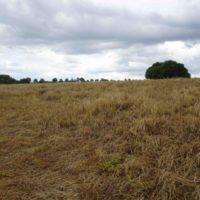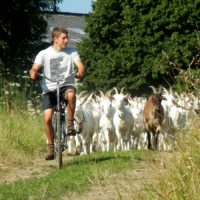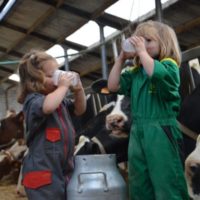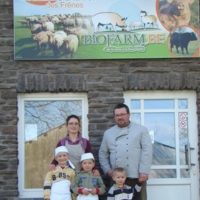Researches for soil regeneration: sharing knowledge
“Les Noyers” Farm, Corroy-le-Grand, Belgium
Beef BBB
Practice abstract
Description
At age 10, Nicolas Braibant knew he would be a farmer. After having taken over the farm, he completely changed the production system. Since “livestock are easier to buy than land because of the price of land”, he increased the number of Belgian Blue beefs (BBB) heads from 200 to 400 in 12 years and intensified the breeding, causing a strong pressure on animal health (pathologies, many caesareans) and obtaining scarce economic results. In addition, in 1996, the crisis of BSE in Europe offered a degraded image of farmers to consumers. Nicolas reacted by creating the first butchery on the farm and found a better financial autonomy. In 2000, BBB cattle health problems still pushed the farmer for a change. Gradually, the more rustic Blonde d’Aquitaine (BA) replaced the BBB herd. The BA meat was highly appreciated by the 3,000 customers of the butcher shop. BA breed is not nasty, but wilder, and as fragile of the airways as the BBB. The secret for producing an excellent meat is a good fattening and a sufficiently long breeding.
As of 2007, the departure of a worker imposed another change, this time concerning the soil management: Nicolas had to work more efficiently. After a careful thought, the change of method: “Why still ploughing, even if it is practiced since always?” It seemed preferable to Nicolas to work in a more sustainable way, which has been reflected in the adoption of different techniques of soil tillage and treatments, soil conservation techniques and agroecology. Thanks to a very careful approach, Nicolas avoided big mistakes and currently, he does not plough anymore before winter.
For the future? “We must continue to evolve: curiosity, meetings, questioning what we are doing”.
Abstract also available in:
Dutch | French | German | Italian | Polish | Swedish




